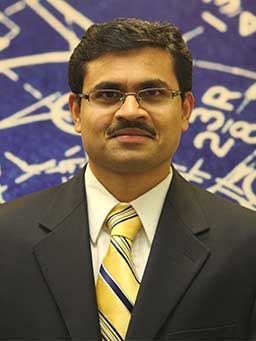
WASHINGTON (TIP): The American Society for Engineering Education (ASEE) will award Dr. Salil Desai, professor in the Department of Industrial and Systems Engineering at North Carolina Agricultural and Technical State University, the DuPont Minorities in Engineering Award during its 124th annual conference.
Desai will be among 11 outstanding engineering educators honored for their commitment to the field, desire to further ASEE’s mission, and participation in civic and community affairs, exemplifying the best in engineering education.
The DuPont Minorities in Engineering Award is given to engineering educators who are charged with the responsibility for motivating underrepresented students to enter and continue in engineering curricula at the university level, and comes with a $1,500 honorarium.
Desai has been recognized numerous times for his dedication to the field of engineering and the teaching experience for his students.
In 2016, he received the prestigious University of North Carolina system Board of Governor’s Award for Excellence in Teaching. In the same year, he was honored with the distinguished Chao and Trigger Outstanding Young Manufacturing Engineer Award from the American Society of Mechanical Engineers and the Outstanding Mid-Career Teaching Award by the American Society for Engineering Education in the manufacturing engineering division.
Desai was also selected for the Triad Business Journal’s 2015 class of 40 Leaders Under 40 for the Piedmont Triad area. He was honored for his research in collaboration with high-tech nano and bio companies that has the potential to revolutionize the fabrication of regenerative tissue scaffolds, bio-chem sensors and functionally gradient materials that lead to next-generation devices and systems. His research has yielded a patent for a major nanomanufacturing process that can fabricate selective features at both the micro- and nano-scale.
Desai obtained his B.S. in mechanical engineering from the University of Mumbai in India and a M.S. and Ph.D. in industrial engineering from the University of Pittsburgh.





Be the first to comment